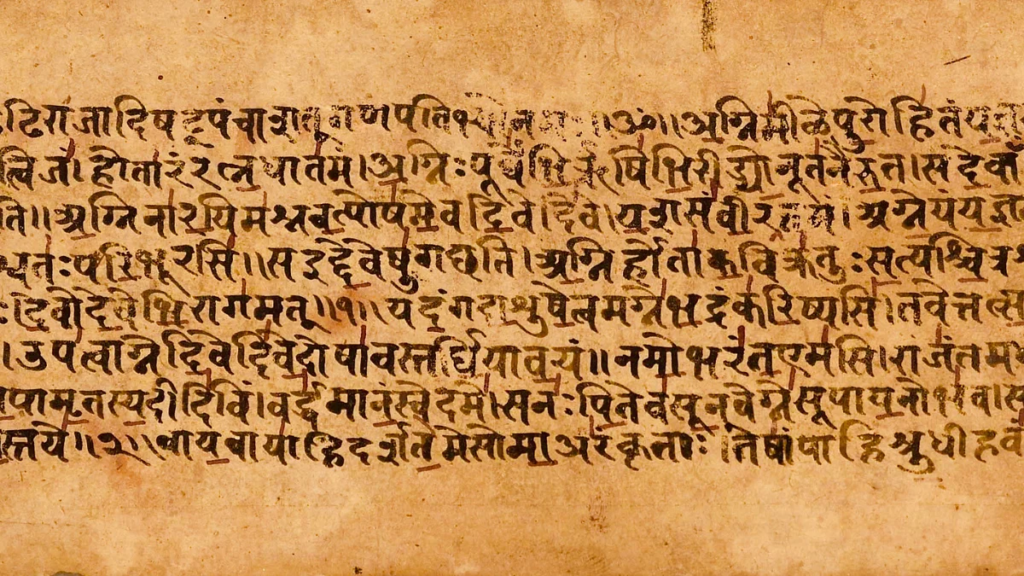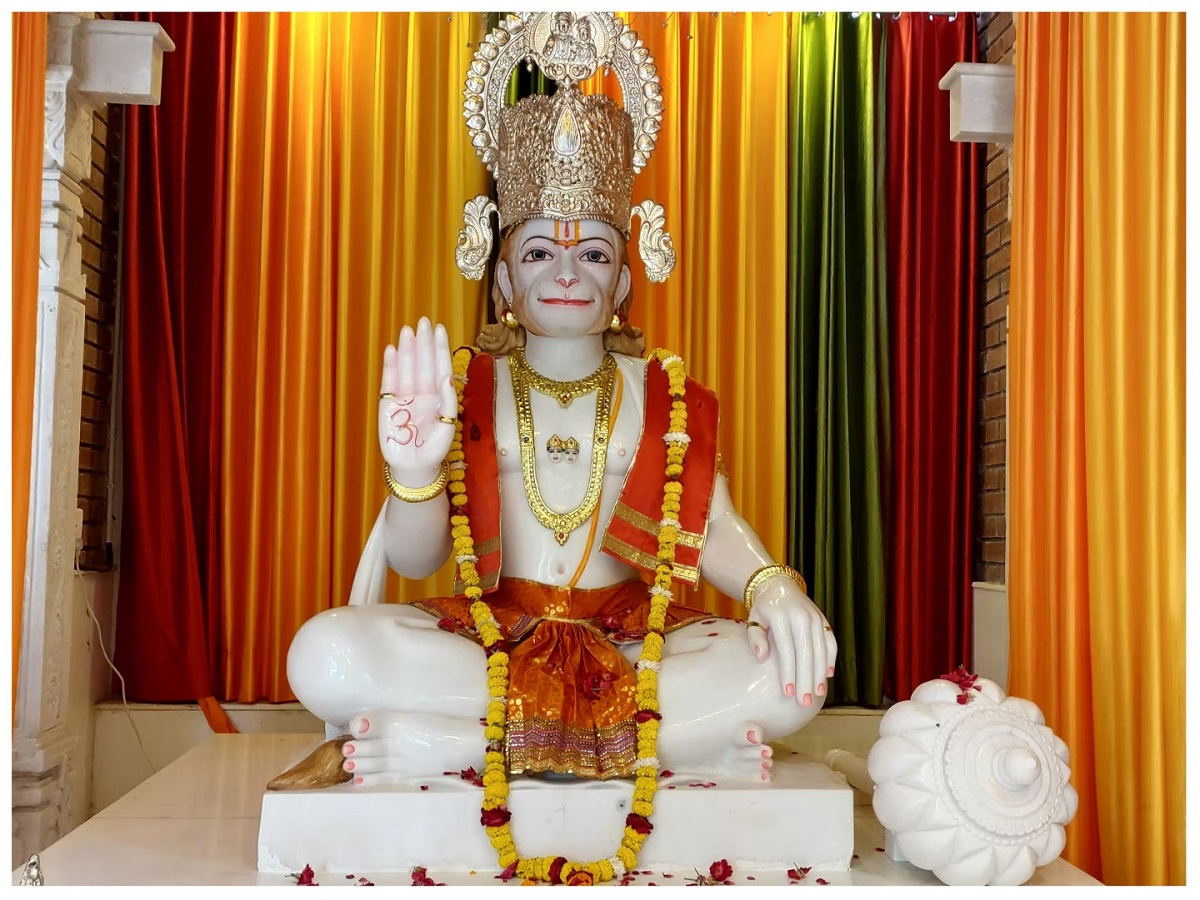The Vedas and their intricate literary compositions stand as profound pillars of ancient wisdom, offering insight into the spiritual, philosophical, and societal realms of the ancient Indian civilization. Among these revered texts, the Rigveda holds a special place as a reservoir of divine hymns and insights, shaping the foundation of Hindu thought and culture. Let’s delve into the world of Rigveda, exploring its origins, structure, themes, and enduring significance.
A Glimpse into Vedas & Vedic Literature
The Vedas, often referred to as the core scriptures of Hinduism, are a collection of ancient texts that encompass spiritual knowledge, philosophical thought, and ritualistic practices. There are four Vedas in total: Rigveda, Yajurveda, Samaveda, and Atharvaveda. Rigveda, considered humanity’s earliest literary composition, has remained remarkably unaltered for over two millennia. Its sanctity has safeguarded it from interpolations, alterations, and modernizations, preserving its original essence.
The Splendor of Rigveda
Rigveda, one of the four sacred Vedas, forms the cornerstone of Hindu religious belief. Its core component, the Rigveda Samhita, consists of over a thousand hymns, or suktas, organized into ten mandalas or books. These hymns celebrate and venerate various deities while encapsulating profound philosophical concepts. The verses touch upon diverse themes, addressing societal concerns of its time, and fostering contemplation.

Rigveda’s Fundamental Concepts
- Composition and Rishi Lineage: Rigveda is attributed to the contributions of ten rishi families. These families played a pivotal role in curating the majority of the text, including hymns and religious instructions. Two prominent schools emerged from this lineage: the Sakalya and Baskala, which also incorporate the Brahmanas and Upanishads.
- Components of Rigveda: Rigveda comprises four main components:
- Samhitas: Oldest sections containing hymns dedicated to deities.
- Brahmanas: Commentaries explaining hymns, with Rigveda Brahmana being a notable example.
- Aranyakas: Also known as “forest books,” they provide additional guidance on rituals and spirituality.
- Upanishads: Contain profound philosophical insights, often exploring the nature of reality and the self.
- Mandalas and Deity Worship: Rigveda’s ten mandalas each serve a unique purpose, primarily praising Hindu deities like Surya, Indra, Rudra, Agni, and Vishnu. These mandalas are repositories of ancient stories, forming the bedrock of Hindu beliefs.
- Philosophical Insights and Rituals: Rigveda’s suktas reflect Hindu philosophy and belief systems. They were employed in rituals, including marriages and religious ceremonies. Some suktas were even recited to ward off negativity and illness.
- Moral and Societal Guidance: Rigveda touches on matters of morality and societal conduct, addressing issues like gambling and governance. It not only served as a religious text but also as a moral compass during Vedic and post-Vedic times.
- Geographical and Natural Descriptions: Mandalas of Rigveda offer insights into the geographical and natural features of the Indian subcontinent. The hymns depict various seasons and describe significant rivers, offering valuable evidence of the era’s landscape.
- Influence on Society: Rigveda’s teachings deeply influenced the subcontinent’s way of life for generations. It delineated the duties of different social classes, emphasizing religion, goodwill, worship, sacrifices, and rituals.
Enduring Legacy and Preservation
The Rigveda’s teachings continue to reverberate through the centuries. Despite not being written down until the 4th century AD, its oral transmission and preservation within the Hindu culture have been remarkable. The phonetics and sounds were meticulously safeguarded, and its oldest manuscript in Brahmi script remains a testament to its preservation.
Conclusion: Illuminating the Path of Ancient Wisdom
The Rigveda stands as a timeless reservoir of divine hymns, guiding humanity towards spiritual awakening, ethical living, and deeper understanding. Its verses reflect a profound connection between humanity and the divine, nurturing a legacy that still resonates in modern Hindu practices. As we explore the mystique of Rigveda, we uncover not only the ancient wisdom of a bygone era but also the enduring light that continues to guide seekers on their journey of self-discovery and enlightenment.



